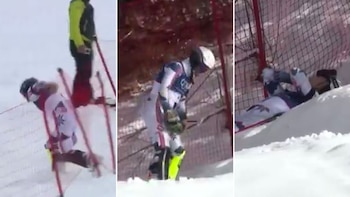
The Mayor of Bogotá, Claudia López, and the Secretary of Security, Coexistence and Justice, Aníbal Fernández de Soto, announced a series of security measures at an event that took place in Teusaquillo. They noted that the restrictions are the result of the security council following the attack on the CAI in Ciudad Bolivar, which left two children dead.
First, the authority will require any public establishment that opens its doors at night to join a security front or local care network. Such fronts are, in fact, agreements reached between the neighbors of a sector of the district and the police officers in the quadrant with the aim of establishing strategies to respond quickly to emergencies or incidents.
On the other hand, there will be restrictions on public square events, such as parks, squares, squares and environmental corridors, between ten in the evening and four in the morning. It will only be possible to travel through these places, not stay, during those hours. In addition, the consumption of liquor, music or excessive noise in these spaces is prohibited.
Night clubs constituted as trade union organizations, which provide services other than those authorized or that violate the provisions of the Code of Coexistence, shall also be subject to sealing.
However, the measures that have most surprised citizens are those related to motorcycles. Two measures were established specifically for them. One of them is that motorcyclists must show the license plate number of the vehicle at all times, both on the motorcycle itself and on the helmet and clothing — vests, raincoats, briefcases, among others.
The measure is intended to make the license plate clearly visible to citizens who see the motorcycle pass by, as well as to authorities and security cameras. In this way, the person who commits a crime on board the motorcycle can be identified. In addition, motorcycles that travel between seven in the evening and four in the morning on Thursdays, Fridays, Saturdays and Sundays, will not be allowed to carry a barbecue or duck (second passenger).
The mayor assured that the measures will take effect from next Monday, April 11 and justified them as a way of “sparing no effort to properly care for the people of Bogota, families, our children.”
“From that day on, we will give a deadline for establishments to contact our Secretariat and link to the front, so that motorcyclists adjust their helmets and clothing so that they can carry their full identification of their license plate, so that they can organize and adjust their schedules knowing that there will be no barbecue in Bogotá,” said Claudia López.
At the same event this Thursday, the Mayor's Office presented a new security strategy that it called the Commando Against Robbery. It will involve 357 police officers, 50 coexistence managers, an air patrol drone and more than a hundred surveillance cameras.
As the name suggests, the initiative aims to reduce theft rates in the TransMilenio system, cycloruts and in public spaces. This front will begin operating immediately in 26 priority areas, located in the towns of Usaquén, Suba and Chapinero.
KEEP READING:
Últimas Noticias
Debanhi Escobar: they secured the motel where she was found lifeless in a cistern
Members of the Specialized Prosecutor's Office in Nuevo León secured the Nueva Castilla Motel as part of the investigations into the case

The oldest person in the world died at the age of 119
Kane Tanaka lived in Japan. She was born six months earlier than George Orwell, the same year that the Wright brothers first flew, and Marie Curie became the first woman to win a Nobel Prize

Macabre find in CDMX: they left a body bagged and tied in a taxi
The body was left in the back seats of the car. It was covered with black bags and tied with industrial tape
The eagles of America will face Manchester City in a duel of legends. Here are the details
The top Mexican football champion will play a match with Pep Guardiola's squad in the Lone Star Cup

Why is it good to bring dogs out to know the world when they are puppies
A so-called protection against the spread of diseases threatens the integral development of dogs



